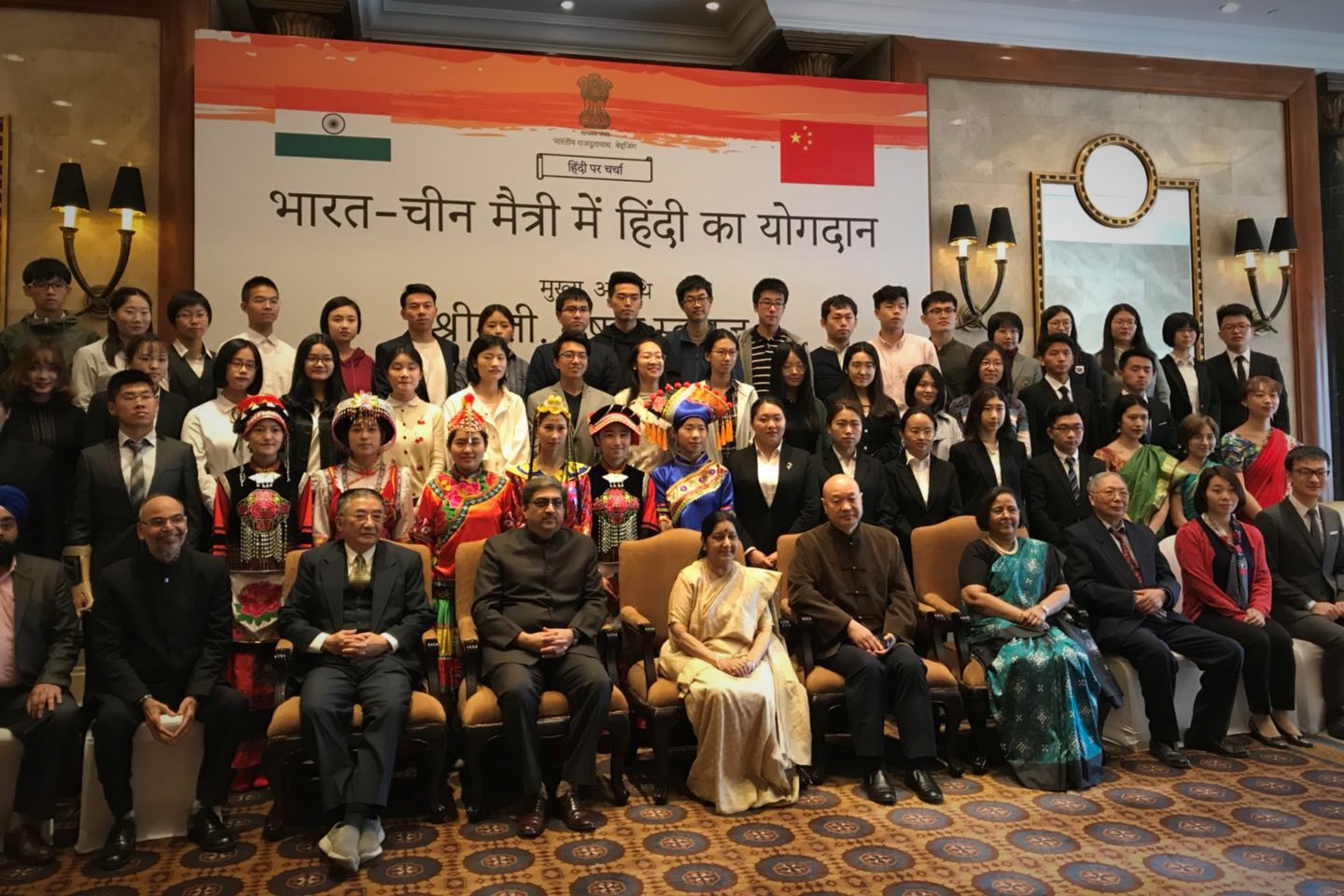Two Nations, Speaking as One

Ahead of Chinese President Xi Jinping’s informal meeting with Indian Prime Minister Narendra Modi on April 27- 28 in Wuhan, capital of central China's Hubei Province, India’s Foreign Minister Sushma Swaraj, spoke about the significance of linguistic and cultural exchange in strengthening India-China ties, at a function on Monday.
At the event, which focused on the rising enthusiasm for learning Hindi among Chinese students, Swaraj was joined by Chinese professor Jiang Jingkui, director of the Department of Southeast Asian Cultural Studies at Peking University, and Gautam Bambawale , the Indian Ambassador to China.
Also in attendance were some of the best students from four Chinese institutes—Peking University, Beijing Foreign Studies University, Beijing International Studies University, and the Yunnan Minzu University. The event, held in Beijing, was unfolded entirely in Hindi, thanks to every person in attendance—whether Indian or Chinese—being conversant in it. As nine students from the university delegations spoke about their experiences of learning the language, and even read lines from well-known—and complex—Hindi poetry, the Indian audience on site enthusiastically cheered them on.
“Hindi is among the languages that have the most number of speakers globally,” said Ambassador Bambawale. “With India’s rising influence, global interest in the language has also increased. Chinese universities are teaching Hindi and there has been a surge of enthusiasm among Chinese youth to learn it because they see a bright future with it.” With China and India both fast expanding their global influence, language exchange would further fortify bilateral bonds, he said.
“India-China ties have been rapidly strengthening, our trade is increasing and we are working together on many international platforms. It is now more necessary than ever before for us to learn each other’s languages,” said Foreign Minister Sushma Swaraj. “A translator can communicate the words but not the exact emotion. I want Chinese people to visit India and Indian people to visit China and be able to talk to the people they meet, without needing an intermediary of any kind. People-to-people exchange is the foundation of diplomatic ties. And speaking each other’s language deepens them.”
Swaraj said she planned to soon start an initiative where a delegation of at least 25 Chinese students learning Hindi could visit India, and learn more about the language, and the country’s culture. “I will most certainly make this happen,” she said. “We welcome them with open arms.”